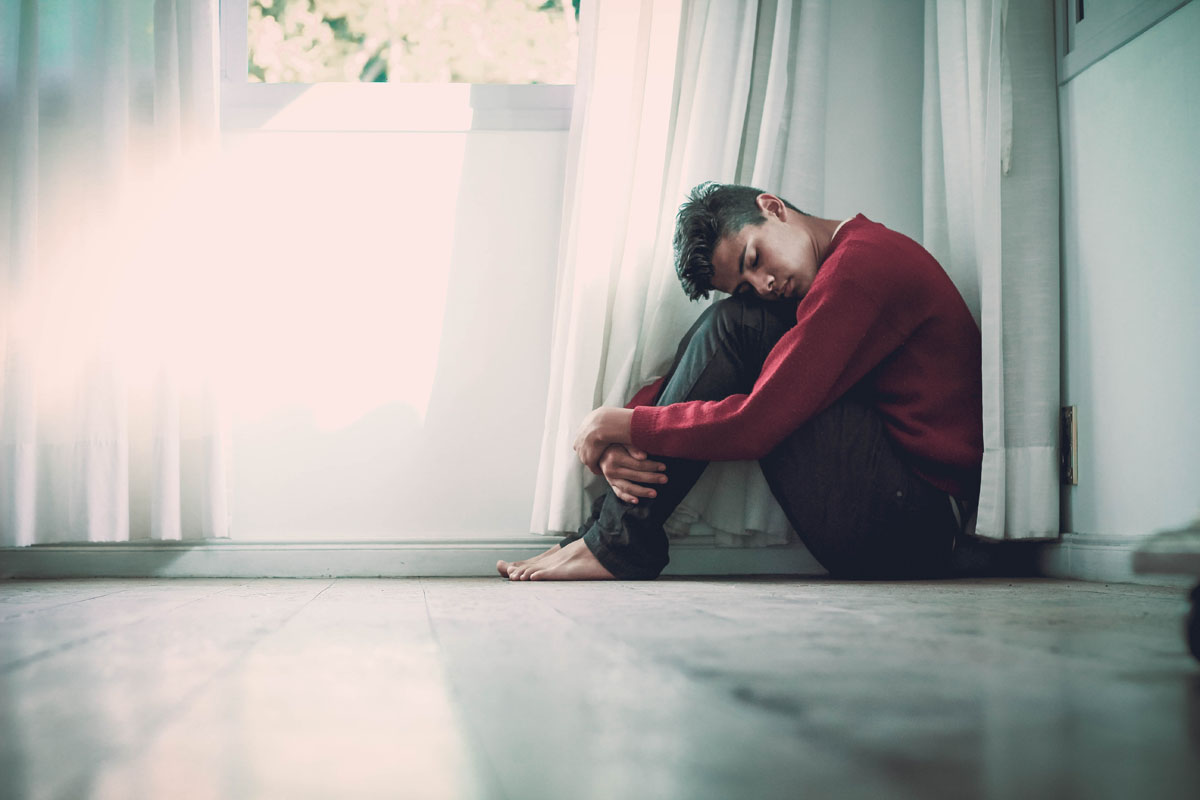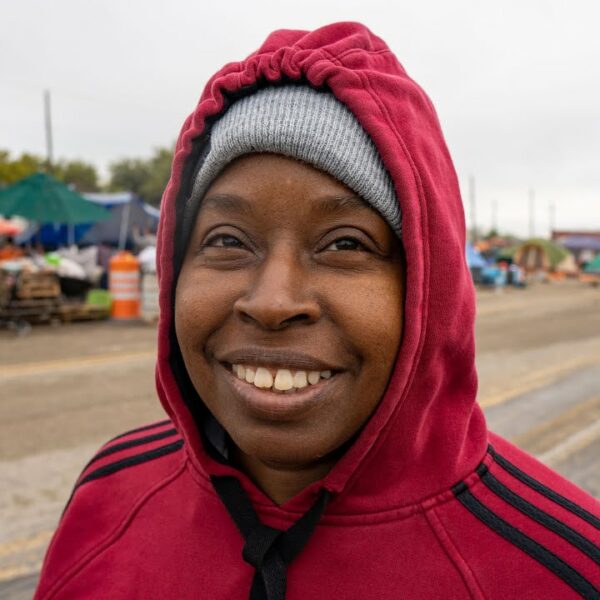Writer Shares How COVID-19 Has Caused Crippling Feelings of Hopelessness and a Constant Fear of Losing Everything, Again
Even now, more than two years after being housed, I attend weekly therapy sessions. Of course, with COVID-19, those sessions are now over the phone. The added stress and anxiety of it has led me to relying heavily on phone calls and messages with my therapist – sometimes several times a week, if not daily.
There is a phrase I often hear in the homeless community, especially from those who were formerly homeless. Many often say that, “those dark clouds never quite go away”. That dark cloud is all of the survival skills you learned while homeless … all of the ways your body remains alert and tense in the face of consistent danger. Being on edge, prepared for the worst at every given moment. Being prepared to protect yourself.
Homelessness changes your life. Homeless trauma is persistent and unforgiving. That dark cloud is the threat of homelessness happening again. It is all of the despair and panic that comes from realizing it.
I lived this way for nearly an entire year after being housed. But eventually I dropped my shoulders, rested and started living again. I finally believed, for a moment, that I was safe. I was going to be okay, I could finally put my guard down. And I did, for a short time. But then COVID-19 happened, and all the stress responses I learned while I was homeless came flooding back.
It washed over me … consumed me. I thought: Oh God, it’s going to happen again.
The threat of homelessness is very real.
And, just like that, those crippling feelings of hopelessness returned.
In tears, I wrote my therapist a long message about how none of this felt real. My home didn’t feel real. The space around me, this apartment, my job, my relationships – none of it felt real. It felt like a dream, like at any moment the veil would be lifted. I felt detached from the space around me, floating in the air, unable to grasp for safety or security.
Derealization and Dissociation are often triggered by severe stress. And I am stressed: stressed that I’ll lose my job. I’m stressed that my job loss would inevitably lead me to lose my apartment. And I’m stressed that the shelters would be at capacity. Even if I found shelter, I’m stressed it would be crowded and unsanitary like many of them are. I’m stressed that I’d contract the coronavirus, and because I have asthma and a compromised immune system, I would die. That’s how it all spiraled out of control. I found myself on the floor having one of the worst panic attacks I’ve had in years.
Because of this, I increased my therapy sessions with hopes to better treat my PTSD. Frankly, I was lucky to find a therapist who was skilled in this area, and could properly treat my diagnoses while also considering the huge impact poverty and homeless trauma has made on my mental health.
It is no question that the homeless sector fails to consider and address this reality. Homeless recovery starts the moment a formerly homeless person entered their new home. And the journey is often long and difficult.
In Addressing Post-traumatic Stress Disorder Caused by Homelessness, we learn that:
Despite the widespread experience of trauma among homeless populations, “homeless services have a long history of serving trauma survivors, without being aware of or addressing the impact of traumatic stress.” PTSD caused by homelessness reflects a failure of the system to quickly and adequately provide housing and appropriate services. Delaying the housing component can create more or new psychological barriers to being housed, an outcome that providers should seek to avoid.
The last time I heard from my social worker was in the van outside my new apartment. He didn’t even help us bring our bags in. He stood outside with a clipboard, waiting for us to sign our shelter release form.
Then I spent the next three days crying uncontrollably because I just spent the last year of my life living in a constant nightmare. Worse of all, I was still in it. And, on some days, I still am.
According to the National Alliance to End Homelessness, at a minimum, homelessness providers should consider the following:
- Housing needs to be obtained as quickly as possible to provide safety and stability while minimizing the potential for associated traumatic experiences
- Since symptoms may be delayed, consumers need to be counseled about psychological changes they may experience in the future, and offered referrals for psychiatric help
- Ongoing support is needed for successful recovery and reintegration into social routines
- Additional factors, such as duration of homelessness and pre-existing behavioral health conditions, might play a role in the success of such programs and policies.
Regardless, providers should recognize their role in implementing services that help consumers address and heal from their traumatic experiences related to homelessness.
Whether or not I’ll be homeless again, I don’t know. But if not me, someone else will be. Even if I end up safe, many won’t be. There is no question that this pandemic will cause an increase in homelessness that will devastate many families and their lives.
This post was written to shine some light on an issue I often hear much about, especially in WAV (We are Visible), Invisible People’s online support group for homeless and formerly homeless people. Homeless people already experience so much trauma from homelessness itself. It is necessary, and the moral thing to do, that we stand up and stand by them as they heal.
We all deserve to live, and we all deserve a healthy, happy life. And, of course, we all deserve a home.












